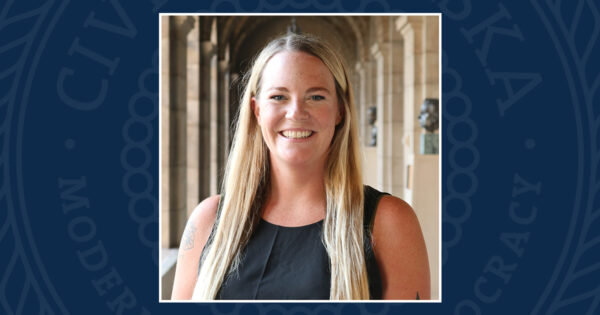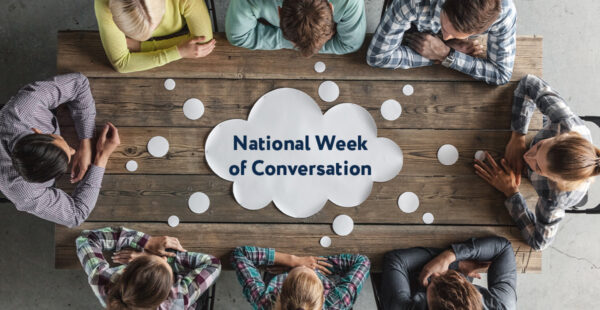This past spring, Elizabeth Gao participated in a civic health community conversation hosted by Civic Nebraska and focused on the findings of the 2015 Nebraska Civic Health Index. Since then, Elizabeth has become an Civic Nebraska intern, and this summer will be posting her perspective on youth and civic engagement.
By Elizabeth Gao
Today’s media attention often targets millennials and younger generation Americans, revolving around stereotypes of being uninvolved, not civically or politically engaged, and tech-obsessed. However, while young Nebraskans consistently have the lowest rates of participation in many indicators of civic health, there’s no doubt about it that stimulating civic responsibility specifically among young adults would contribute powerfully to the community and help strengthen overall civic health amongst our state and nation. Keeping this in mind, the focus remains on how to effectively motivate and market opportunities to individuals, and encourage them to take action in their communities.
Quite frequently among my high school aged peers, I’ve observed that it essentially comes down to two main reasons for the lack of interest in being involved in the community and political process. First, some individuals simply don’t feel as if they are qualified enough to do commit to activities such as talk to public representatives or vote, or perhaps may not have knowledge about certain opportunities. In the road ahead for community engagement, this problem could be easily addressed on a macro-scale by utilizing social media to spread volunteer opportunities and information. This idea comes to the forefront of data-backed action steps proposed in the 2015 Nebraska Civic Health Index. In fact, the second action step in the report urges community leaders and organizations to strengthen civic health by creating and promoting accessible networks for community engagement, and suggests using online social media to connect community members and projects. This would be incredibly effective especially to market to these young adults, who tend frequent social media and other technology the most.
The second reason I see many of my peers become disengaged in community and political matters has characterized “Generation Y” as “Generation Why Bother?” However, I believe this expression also reveals ways to combat this problem. We can decrease apathy among young Nebraskans by giving them a reason to bother, and a reason to take action. The Civic Health Index outlines ways to effectively garner the support and action of young Nebraskans.
- One way is to understand Millennials’ motivation to support a cause. Millennials distinctively volunteer for an issue rather than an organization, which creates an opportunity to channel this eagerness to make a difference into opportunities that create great outcomes.
- Another way is to use opportunities for activism as a starting place to target support. In the past year, I’ve been able to see this firsthand as an extremely powerful motivator to take action. Recently, a group of my high school aged peers were able to take initiative against a bill that would directly impact their wages, and was a great example of their efforts in finding resources via social media, contacting legislators, and take interest in the cause — and could potentially lead to a path of deeper involvement.
- And lastly, another effective way to market opportunities to Millennials is to market service as a way to socially connect with likeminded peers. This allows for these like-minded people to interact and connect, while simultaneously contributing to the community. Building social connections is a prioritized activity among young people, and research shows we tend to prefer opportunities to do so while making a difference.
From the perspective of a high school student, I believe the greatest way to foster interest in the community is to prioritize civic education that fosters civic action for all students in Nebraska, also one of the action steps in the Nebraska Civic Health Index. Nebraska schools and state leaders should continue to prioritize this type of active and participatory civic learning. This starts with the introduction of elementary school students to the State Capitol building and starting their civic education. It continues on to civics and history classrooms where students are educated about civic health, rights, opportunities, and responsibilities, along with the roles of citizens and the government. Civic education flourishes with the aid of other community activities, where young people have the ability to experience more. Just last year, I experienced this kind of civic empowerment through Youth Leadership Lincoln, a program designed to stimulate civic engagement. At the end of the experience, many of my peers agreed that learning more about the city and state that we lived in fostered a greater sense of appreciation for our community, which would thus lead them to take action about the things they cared about.
By stimulating civic and political engagement in young Nebraskans, we will be able to unlock powerful contributors to our community and strengthen our overall civic health. Fulfilling these actions in a meaningful way will allow us to be better citizens and work together to strengthen the communities we live in.
The 2015 Nebraska Civic Health Index is just the starting point for strengthening civic health in Nebraska. To find out more or to join the movement, check out our Civic Health page and contact Civic Nebraska Director of Special Programs, Kelsey Arends – kelsey.arends@civicnebraska.org, (402) 904-5191.



